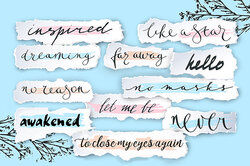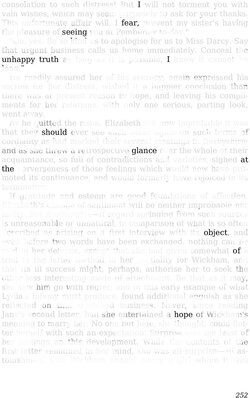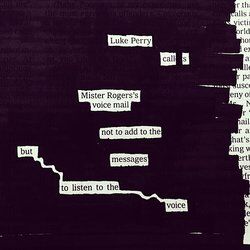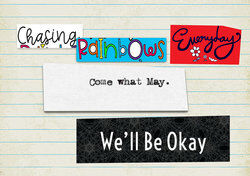
Found poems are created from pieces of literature that already exist. A poetic collage of sorts, found poems can be inspired by the pages of a magazine, newspaper, book or even another poem. To get some inspiration for creating your own found poems, dive into several examples of this unique poetic form.
What Is Found Poetry?
You might not think that poems can be found, but found poetry is here to prove you wrong. This poetic genre is a collage of words.
Using words in magazines, books or other poems, you piece together your own unique poem. Where you might find the content for your found poetry is completely up to you. You might create a found poem out of a short book excerpt, Shakespearian works or even your favorite magazine.
Found Poem Format
Found poems are unique in that they come in several poetry styles and span several genres. They could include rhyme or be totally free form. You might find long found poems or short ones.
Explore a few unique examples of eraser, blackout, collage, and cento found poem styles below.
Eraser Found Poem Examples
An eraser found poem is where you erase a majority of the words on the page to create a poem. This can be done on old book pages, newspaper copy, or printouts of sonnets, for example. Eraser found poems can be created in a variety of ways, including:
- Lightening or erasing part of the words on the page so your poem stands out
- Coloring over the other words on the page or adding images over them
- Circling or highlighting the words of your poem
This form of found poem can be seen in these examples that follow.
Beautiful Leech by Carrie Arizona
Whoever you may be,
be as blood flowing
to a bleeding answer.
I am a wound
who lives on blood
like a beautiful leech.
In this found poem, Carrie Arizona weaves a path to create a poem that is both aesthetically appealing and unique. The movement of the bubbles makes it appear like blood flowing.
Hope by Jennifer Betts
I fear unhappy truths.
I should glance
At the object of hope.
In this found poem, Jennifer uses a page from Pride and Prejudice to explore the theme of hope and thinking. By lightening the other words, the poem comes to life.

Blackout Poem Examples
A special type of eraser found poem is the blackout poem. This is where a black, or colored, marker is used to black out all the wording on the page but the poem. It creates a drastic contrast, bringing the poem to the front. People have also used the blackout form to create intricate images along with the poems themselves.
Neighbors by Austin Kleon
Luke Perry calls Mr. Roger's voice mail
Not to add to the messages
But to listen to the voice
This poem was written as a tribute to actor Luke Perry. In the blackout poem "Neighbors," Kleon uses the total blackout method with paths to illustrate how the poem should be read.

Inward by C.B. Wentworth
I turned inward
To wish
Of skylarks and breezes
In "Inward," Wentworth uses not only the black background but also imagery to create a unique blackout poem. The image of the birds created on the page adds depth and feeling to the piece.
Cut-Up Collage Poem Example
Just like their name implies, cut-up poems are created when a writer cuts words out of books, magazines, and newspapers. They then rearrange them on the page to create their own work.
In the early 1900s, Tristan Tzara broke down the process of the cut-up poem by cutting up newspapers and rearranging the words. Current cut-up poems can be created from all different types of written words.
Formed in the Stance by William S. Burroughs
The beautiful disease and
The government falls
along the weed rooms
flesh along the weed government/ / / /
Created from a page in the Evening Post in 1959, "Formed in the Stance" uses cut-up lines and folded text in the formation of the poem. Since his poems were created from cut-up newspapers, he used marks like //// and ???? to separate each stanza. While Burrough's works can be hard to understand, it's more about the creation than the actual meaning of the poem. He was highlighting that a meaningful work of poetry could be found anywhere. Burrough's cut-up method later inspired songwriters such as David Bowie and Curt Cobain.
Rainbows by Jennifer Betts
Chasing rainbows everyday
Come what may
We'll be okay
Cut-up poems come in all shapes and sizes. You can find random and jarring like those created by Burrough or they can be artistic and cute like the Betts created poem. You are only limited by your materials and imagination.

Example of Cento Poetry
A type of patchwork poetry, cento poems are actually created from other poems. They are stitched together like a patchwork quilt to create a new theme or meaning.
This type of poetry started in the 3rd century when other poets took lines from Homer and Virgil's poetry. It was considered a form of flattery. Withstanding the test of time, the cento form is still used today by common poets like Simone Muench.
Wolf Cento by Simone Muench
Very quick. Very intense, like a wolf
at a live heart, the sun breaks down.
What is important is to avoid
the time allotted for disavowels
as the livid wound
leaves a trace leaves an abscess
takes its contraction for those clouds
that dip thunder & vanish
like rose leaves in closed jars.
Age approaches, slowly. But it cannot
crystal bone into thin air.
The small hours open their wounds for me.
This is a woman's confession:
I keep this wolf because the wilderness gave it to me
In "Wolf Cento," Muench pulls from famous works by Anne Sexton, Henri Michaux and more to create an original found poem. The unique mash-up of lines creates a sense of urgency, running from a pain or loss.
Is It Plagiarism?
Since the phrases and quotes are typically sourced, found poetry isn't considered plagiarism. Additionally, the look, feel and message are also completely unique to the poem. This makes found poetry a unique art form rather than simply copying and pasting someone else's work.
Found Poetry Prompts
The fun part about found poems is the finding. To get you on track for creating your own found poem, grab some books, newspapers or magazines, and give these ideas a try.
- Use a page of Romeo and Juliet to compose a love poem.
- Grab a page from your favorite book and try creating an adventurous blackout poem.
- Write down lines from several of your favorite poems and form a ballad.
- Try using words from magazines to make a haiku.
- Create a cinquain using the cento poem method.
The Fun of Found Poems
While it might sound easy, creating a found poem can be harder than you think. Before you start, you'll want to think of your theme. Then, grab your word source. And, don't be afraid to get creative!
Now that you've explored found poems, give imagery poems a try. You'll learn just how good you are at figurative language.